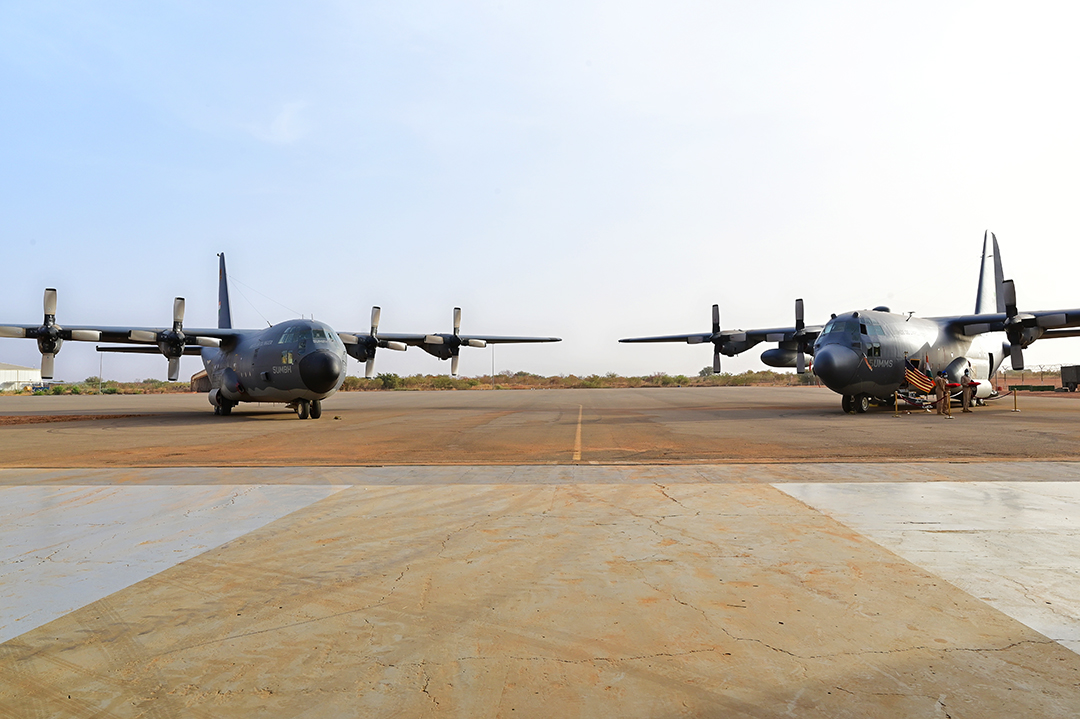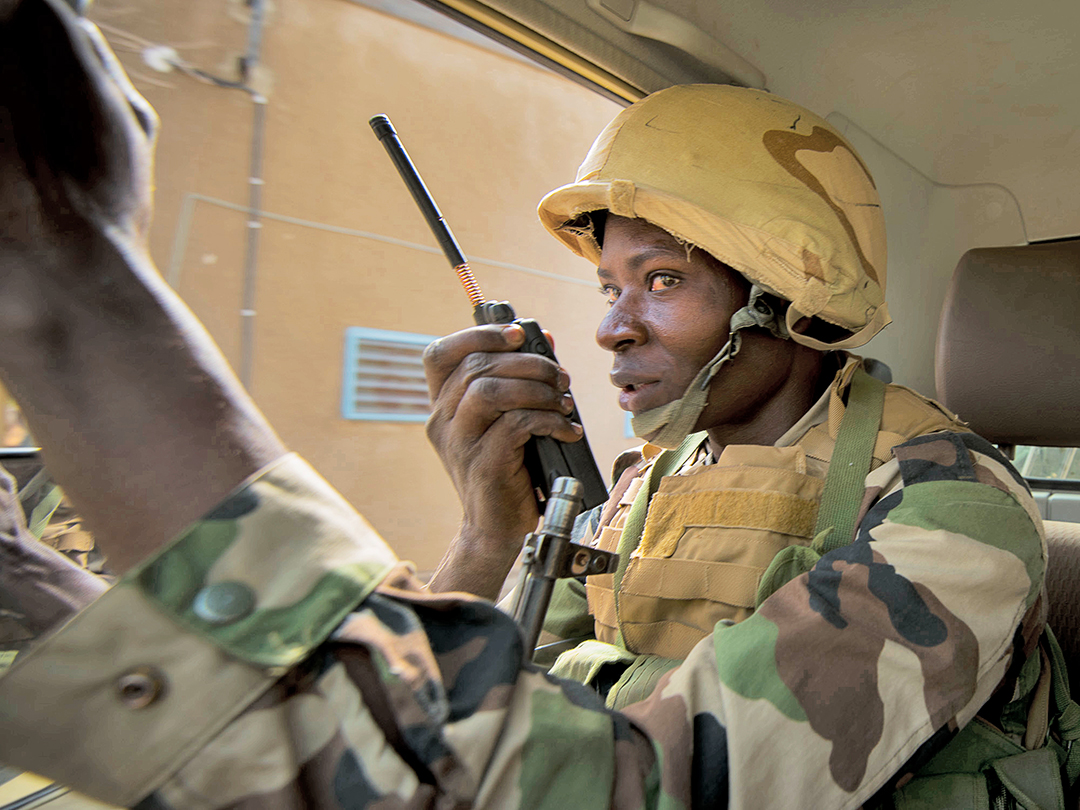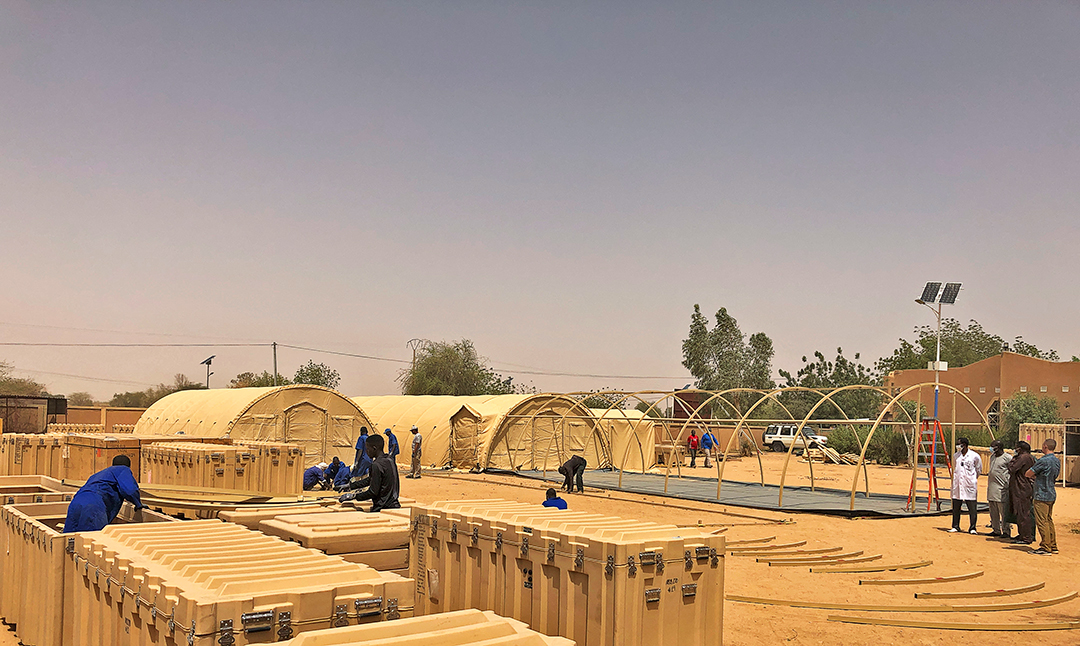ADF STAFF
Niger’s announcement that it will suspend military cooperation with the United States is reverberating across the region, with observers fearful that Sahel security will further deteriorate.
Col. Maj. Amadou Abdramane, a spokesman for Niger’s National Council for the Safeguard of the Homeland (CNSP), made the announcement on national television on March 16. The move came after a meeting with a U.S. delegation that included Gen. Michael Langley, commander of U.S. Africa Command, and Molly Phee, assistant secretary of state for African affairs.
The U.S. and Niger are continuing diplomatic discussions to clarify the future of the U.S.-Niger security partnership, according to a statement by Deputy Pentagon Press Secretary Sabrina Singh.
The U.S. has about 1,000 military and civilian personnel in the country supporting operations at Air Base 101 in Niamey and Air Base 201 near Agadez. Niger has been a bulwark against terrorism in the region for more than a decade. In 2013, the two countries signed a status of forces agreement that deepened military cooperation, allowing the U.S. to position manned and unmanned aircraft in the country, primarily to monitor extremists.

The partnership has been mutually beneficial. The U.S. invested $110 million to build Air Base 201 near Agadez and spends about $30 million annually to maintain the airfield and its 1,890-meter runway. Intelligence, surveillance and reconnaissance flights from the base began in 2019 and provided vital information to Sahelian countries fighting entrenched terrorist groups operating in the Tri-border region.
The U.S. donated three C-130 Hercules transport aircraft to move troops and equipment around Niger’s vast territory and provided assistance for other projects, including $20 million to support the disarmament, demobilization and reintegration of ex-fighters. As of early 2023, Niger was the largest recipient of U.S. State Department military assistance in West Africa.
The efforts appeared to have paid off. In 2022, Niger bucked a regional trend and saw an 80% drop in terror-related deaths. During the same period, Mali and Burkina Faso suffered an increased number of attacks.
“Niger has presented itself as an oasis of stability in the troubled region and a reliable partner,” Al Jazeera reported in 2022.

The two countries partnered for numerous bilateral and multilateral training events. Niger hosted Flintlock, an annual African-led special forces exercise, in 2014 and 2018 and hosted a portion of the exercise in 2017. During these exercises and throughout the year, the two countries have worked on civil-military engagement programs, often in communities near the air bases, offering free medical and veterinary treatment as well as other support to civilians. During the COVID-19 pandemic, the U.S. provided two $1.6 million mobile field hospitals which were used to treat patients in the Tillaberi region and in Agadez.
Observers fear that an end to the partnership could mean trouble in the long term.

“I think this does leave Niger, as well as Burkina Faso and Mali, extremely exposed,” Alexis Akwagyiram, managing editor of Semafor, told Al Jazeera. “When you push out all of those Western troops, you can see an attempt to make up the numbers by forming a security pact between themselves and turning to Russia, but I don’t think that’s going to make up for the shortfall. Not in terms of numbers, certainly not in terms of capabilities.”
Perhaps most significant would be the loss of aerial surveillance of terror groups across the Sahel. “That’s a huge capability that’s being removed and is not being replaced, so the implication is that over time the security situation is going to deteriorate,” Akwagyiram said.
Concern also is growing about Russian involvement in Niger. Russia’s mercenary Wagner Group, now known as Africa Corps, has deployed to Burkina Faso and Mali. Despite pledges of counterterror assistance, extremist violence has escalated in both countries and mercenaries have been accused of committing atrocities against women, children and ethnic minorities. In both countries, observers say, the Russian presence has been a boon to terror recruitment.
“While Wagner is employed by several states to fight and weaken jihadist groups in the Sahel, its growing presence — and reputation for brutality — is having the opposite effect,” wrote Colin Clarke, director of research for the Soufan Group, a global intelligence and security consultancy, in an article for The New York Times. “Terrorist organizations have used rising resentment of Wagner’s scorched-earth tactics to recruit new members, offering them both protection and an opportunity for revenge.”
Security experts believe that extremist groups are now closely watching developments in Niger and are prepared to take advantage of a security vacuum.
“If the relationship between the U.S. and Niger is permanently severed, surveillance and intelligence gathering will be seriously affected,” wrote Dr. Olayinka Ajala, a senior lecturer in politics and international relations at Leeds Beckett University, in an article for The Conversation. “Terrorist groups could capitalise on the situation and become more daring. Surveillance drones offer a deterrence to terrorist groups.”

